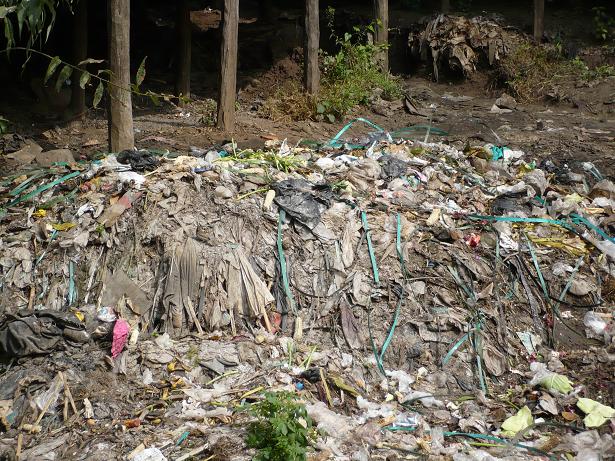- About
- Topics
- Picks
- Audio
- Story
- In-Depth
- Opinion
- News
- Donate
- Signup for our newsletterOur Editors' Best Picks.Send
Read, Debate: Engage.
As the world experiences a technological boom, waste from electronics has reached epic proportions, taking a toll on people’s health and the environment.
From smartphones, computers, TVs, screens and solar-energy products, these gadgets are responsible for 53.6 million tonnes of e-waste. A UN report dubbed ‘A new circular vision for electronics’ captures the magnitude of the menace, equating that cumulative waste to the size of all commercial aircrafts ever made or 5,000 Eiffel Towers. This waste is projected to hit 74 million tonnes in 2030 before reaching 120 million tonnes by 2050 if nothing is done.
By 2040, carbon emissions from the production and use of these electronics will account for 14 percent of all total emissions. Even with such devastating numbers, only 20 percent of the global e-waste is recycled. Yet, the dangers to people, planet and the environment are catastrophic. A bulk of this waste that is non-biodegradable gets buried underground in landfills and contains substances that are dangerous to human health and pollute water sources, the environment and food chains.
Nevertheless, countries and institutions are reversing the trend by investing in policies, technologies and partnerships. About 13 African countries have set up legislation, regulation and innovations around electronic waste management.
In Rwanda for example, a first-of-its-kind e-waste recycling and refurbishing facility, which is a public-private partnership initiative, has the capacity to process 100,000 tonnes of e-waste each year. It has so far processed 4,000 tonnes while creating more than 6,000 jobs.
While the world has a long way to go in instituting and strengthening e-waste management systems, directives like requiring producers to cover the cost of e-waste management, as is happening in Nigeria, introducing e-waste eco-fees on the importation of used electronics, as is the case in Ghana, or investing in innovations that safely recycle waste and create jobs, like in Rwanda, have proven that the world can tame the e-waste menace for the sake of its people and planet.
Photo by John Cameron
